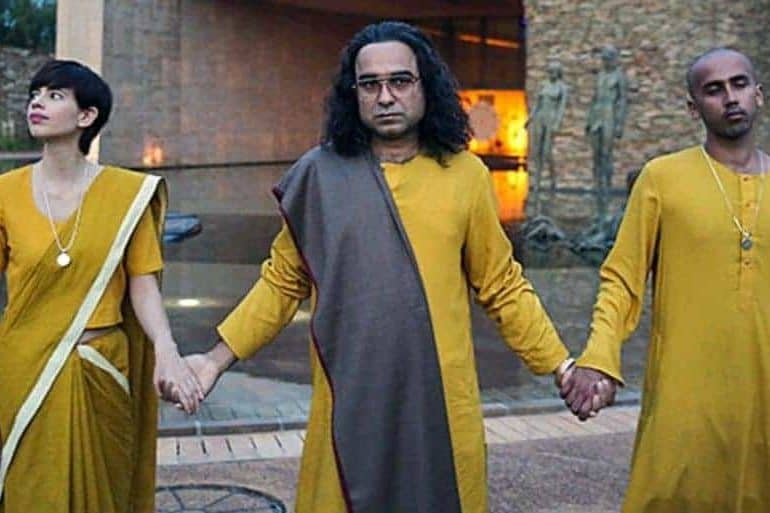We all have heard or seen the so-called stakeholders of our culture, according to whom the Indian Culture is threatened by even trivial things like the relationship between two individuals or even a dress worn by someone but is this really the case?
The Indian culture today as I think of it is not harmed by what people do or follow of it but its harmed mostly by what people think of the Indian Culture. When we say that same-sex marriage and LGBTQ rights were not and are not a part of the Indian culture, we are believing fallacious teachings. When we say that eating pork or eating beef is prohibited by Indian Culture then again we are mistaken. When I say Indian culture, I refer to Hinduism, as it is not just only a religion but it’s more of a culture, which has been shaping the lives of Indians irrespective of their religion for a very long time. Most people have misunderstood the Indian culture and thought of Hinduism as contemporary culture, whereas it is an ancient yet modern culture that has bettered over the years. Like, in Indian Culture we have the idea of polytheism but as none of the modern religions have that, many people try to mold the Indian Culture into a monotheistic ideas, as a result of which we have emergence of supreme godly figures like Rama, Krishna, Ganesha, etc., whereas according to our scriptures a Hindu isn’t obliged to worship anyone deity or power. Instead one can worship whatever helps them to live a better life. This is the exact reason why Hindus also pray mountains like Mt.Govardhan. The modern world is not able to easily understand Hinduism, which not only includes foreigners but also us Indians. India or Aryavrat as it was called earlier was often referred to as the land of seekers by Greeks and Romans, the reason for this is that Indians were known to have the freedom to question their faiths and beliefs. In the western world, the church often barred and even punished scientists. As a result of this, most of the researchers in the western world were atheists. They thus, advocated that science and religion can never grow or prosper together. Whereas when we come to India and even other ancient eastern civilizations like China, we see that most of the scientists here were in fact saints and sages. Moreover, they believed in religion as much as others did and maybe even more. Examples such as Sushruta, Charaka, Aryabhatta, etc. are proof of this theory. We do not have only one scripture which is important to us but we have many, we have Vedas, we have the Puranas, we have the Upanishads, etc. on the other hand, we have various examples such as Maa Lakshmi, Maa Durga, Shakti, etc. as women whom we worship today as Devis or goddesses, which tells us how much the Indian culture respected the woman. Coming on the LGBTQ front, Brihanala, the great warrior of the epic Mahabharata was also part of the LGBTQ community and she never was discriminated upon by anyone instead she was a ‘Maharathi’ which is equivalent to a military general today and yet after millennia women today have to even prove that they are eligible for protecting their own motherland. The Indian culture was also very welcoming to foreign relations and foreign people and we as a culture have never sent out even one missionary to convert people forcefully into our religion and our culture as we thought that religion is something which is based on choice and not compulsion. These achievements of Indian society itself is the very answer to why Indian Culture is threatened. Today we have changed ourselves from a free society to one where questioning our own faith is perceived as sin. The so-called stakeholders of our culture have made us believe that God is supreme and questioning him would be iniquitous. We have been made to believe that if we eat a certain type of food then we world become sinners. We have been taught that in order to be content we have to follow someone blindly and that we can’t do that alone.
So, according to me the greatest threat that the Indian culture today faces is the molding of the Indian culture into a so-called contemporary culture which cannot understand the idea of welcoming everyone, thinking the world as a family, promoting LGBTQ and women equality rights, seeking for knowledge outside of scriptures and most importantly the freedom of being able to ask the one’s God questions and interpreting the God in one’s own way, as the Rig Veda says and I quote
“The supreme power is always one and his various qualities are what we worship as devtas.”
This tells us the Indian Culture promotes singularity and plurality together. Thus, to save our culture we have to make sure that we do not hesitate to ask questions on each and every aspect of our culture, we have to make sure that we never blindly follow any person or superstition and above all, we respect the personal faith of each individual around us. Our culture isn’t vulnerable to the clothes we wear or the food we eat but it is very much vulnerable to our own narrow mind-set.
Feature Image Credits: Navya Jindal for DU Beat
Aniket Singh Chauhan


